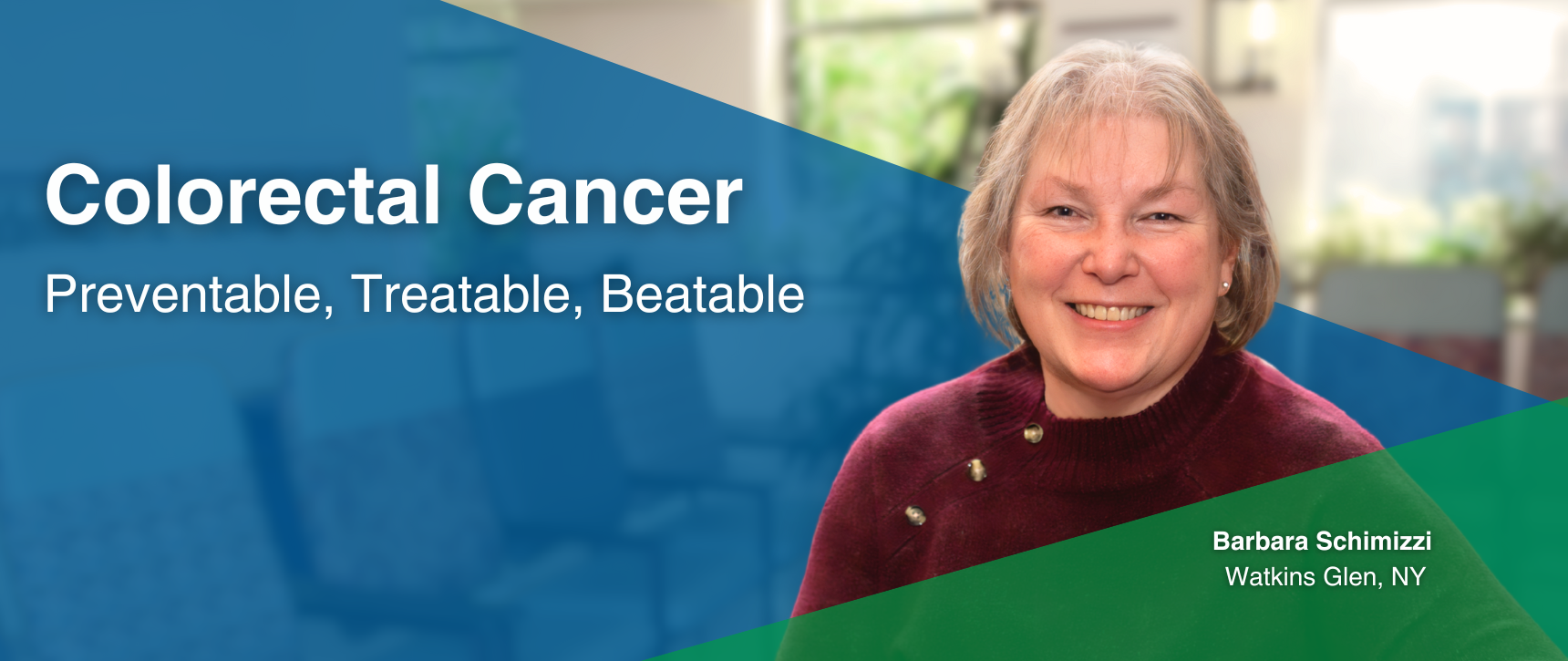Colon Cancer is preventable, treatable, and beatable. If you are 45 or older, getting screened could save your life! Colorectal cancer usually starts from polyps in the colon or rectum. Some polyps can turn into cancer over a period of time. Screening tests can find polyps, so they can be removed before they turn into cancer.
About
Screening Saves Lives
Don’t Wait for Symptoms to Appear
Colorectal cancer is preventable, treatable, and beatable. Early detection is the key to safeguarding your health.
Cayuga Health empowers you to take proactive steps in your colorectal health journey by offering a range of screening options. To select the most appropriate test, you will want to consider various factors such as personal risk, preferences, and medical history. Our knowledgeable team can guide you through these choices to ensure that you are informed and comfortable with your screening plan.
Our state-of-the-art Cayuga Endoscopy Center in northeast Ithaca, alongside Schuyler Hospital’s recently enhanced surgical suites, provide comprehensive, compassionate care. Our facilities are equipped with advanced technology and staffed by a team of board-certified gastroenterologists, surgeons, and dedicated healthcare professionals. Our aim is to offer a comfortable, private, and stress-free environment for everyone.
We invite you to discuss your screening options with our specialists, who can help tailor a screening strategy that best fits your needs. Early detection is key in the fight against colorectal cancer, and we’re here to support you every step of the way.
Schedule Your Screening Today
what our patients are saying
“The staff and accommodations at Cayuga Birthplace are amazing!!! This is what it I imagine it would feel like to be a celebrity getting VIP treatment. I wish I could stay longer – even the food options are 5 Star! The amenities are great. Everything is clean and designed beautifully. Not a single complaint, only praises!”
“I have to say the last couple visits that I’ve had here have been wonderful. About a month ago I had an EGD and the staff were amazing! Explained everything in detail and made me feel at ease. I was very nervous and the nurse I had was very comforting. Tonight we had to take my son to the emergency room and they were awesome with him! We got right in. “
“I have had many occasions visiting CMC for myself and family. We have never had a bad experience there at all. Last October I had surgery and the nurses were amazing especially my night nurse. Thank you to all CMC staff for doing what you do every day with a smile.”
“I have been a Hemo dialysis patient for almost Five years. Prior to dialysis and during dialysis I have had several trips to the ER, due to other health issues & was admitted to CMC more than a few times. Each and every time I’ve been there, whether in patient or out, I have been treated with respect, professionalism, and efficiency. I give this hospital 2 thumbs up!! Thank you CMC for taking care of me all these years!!”


